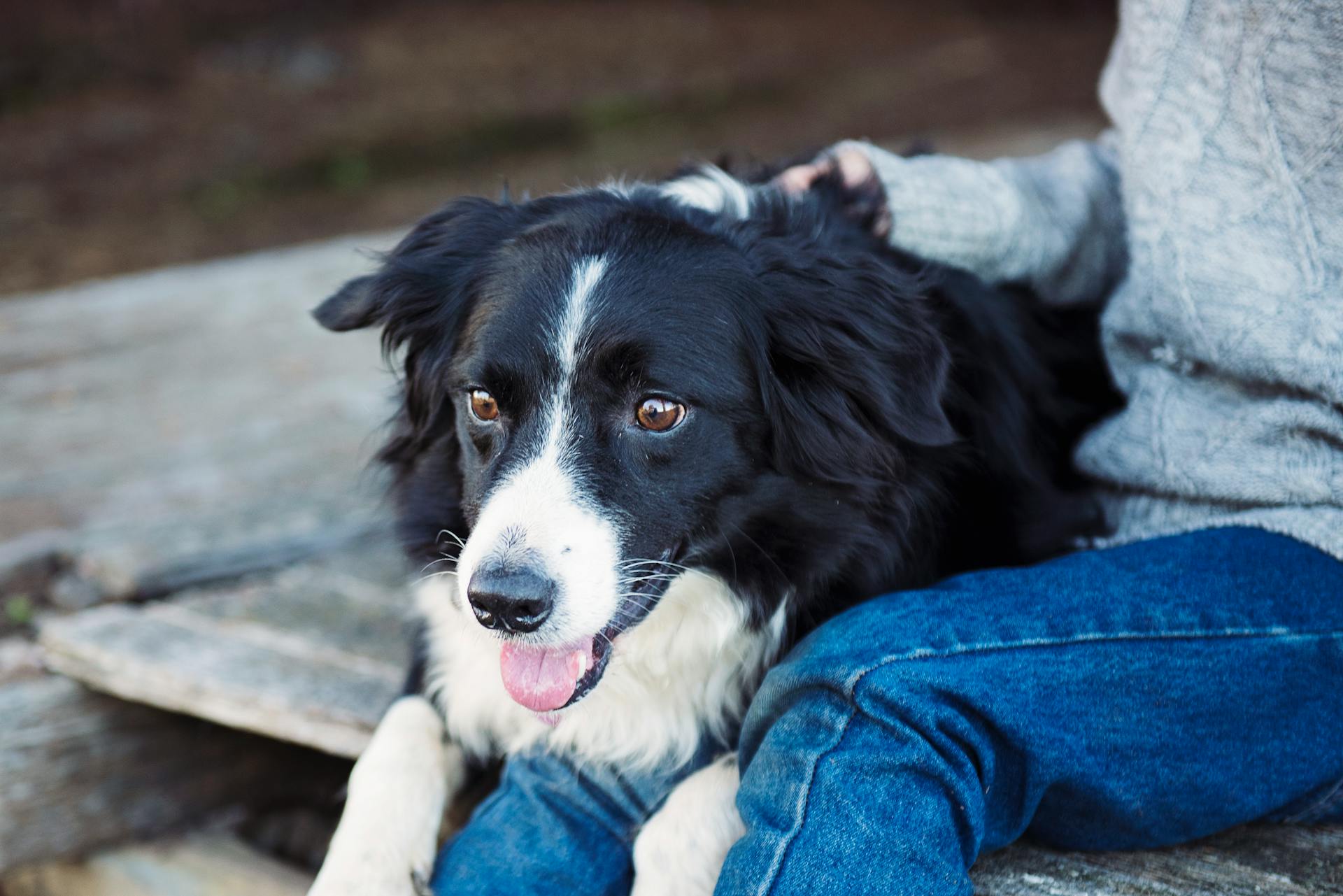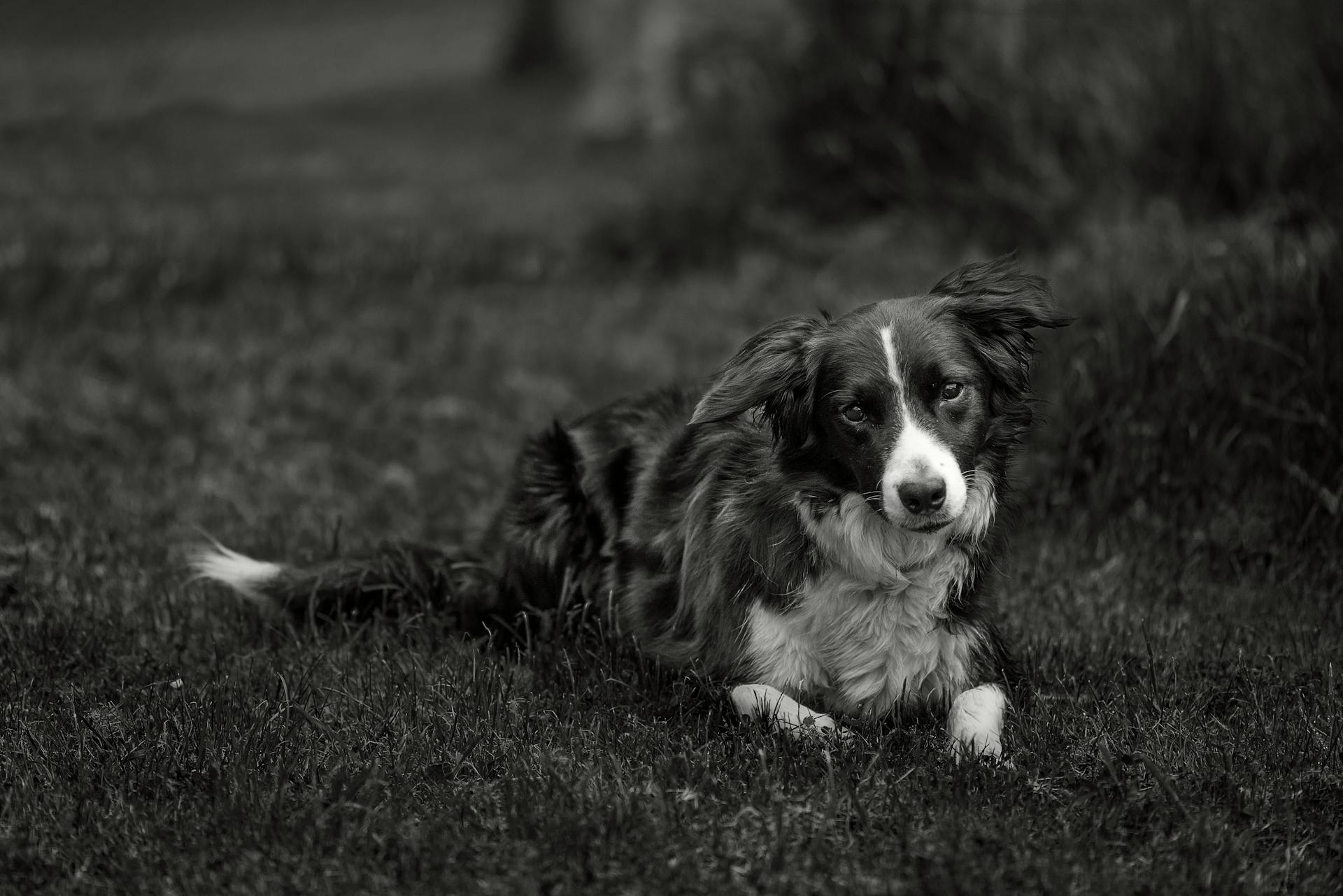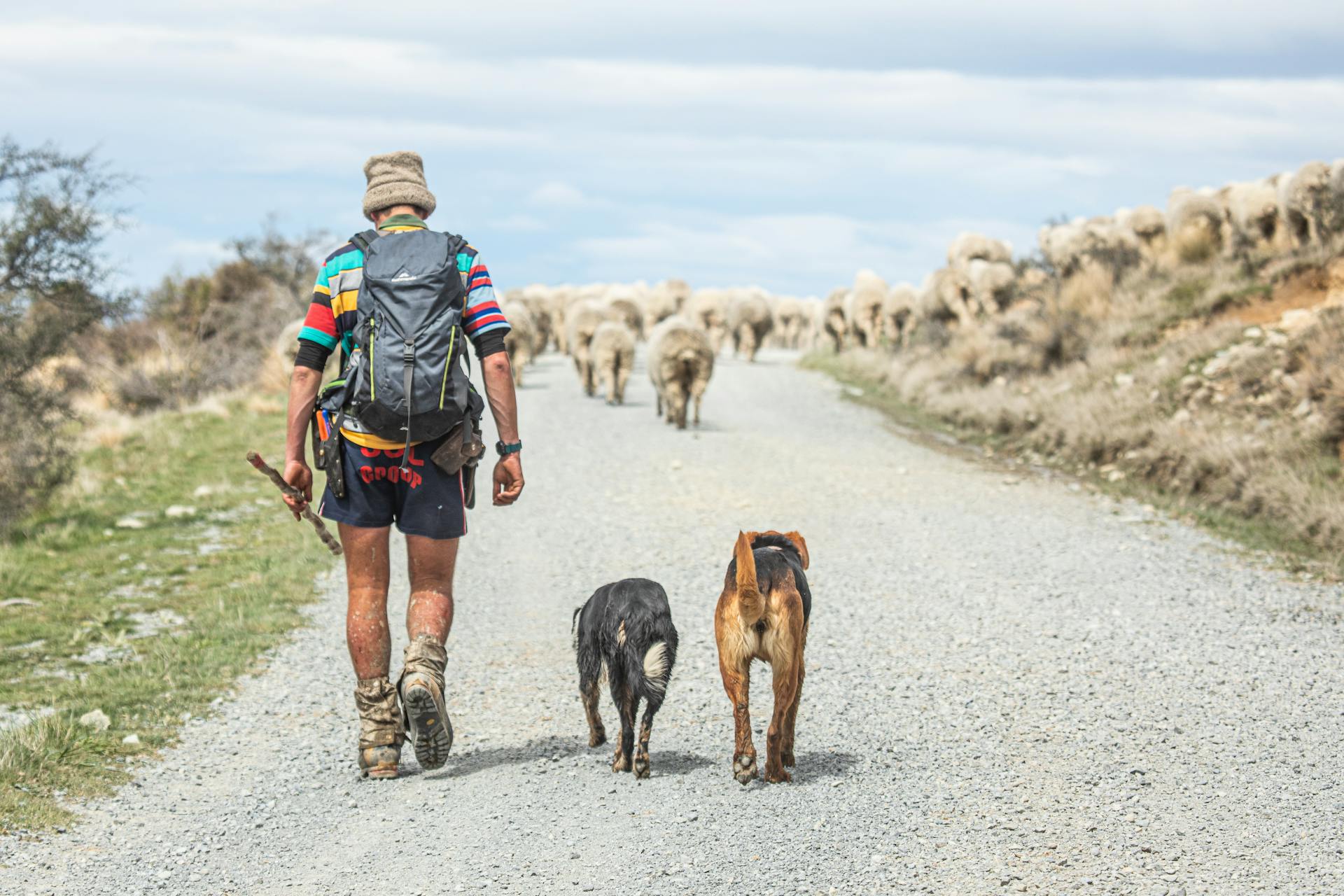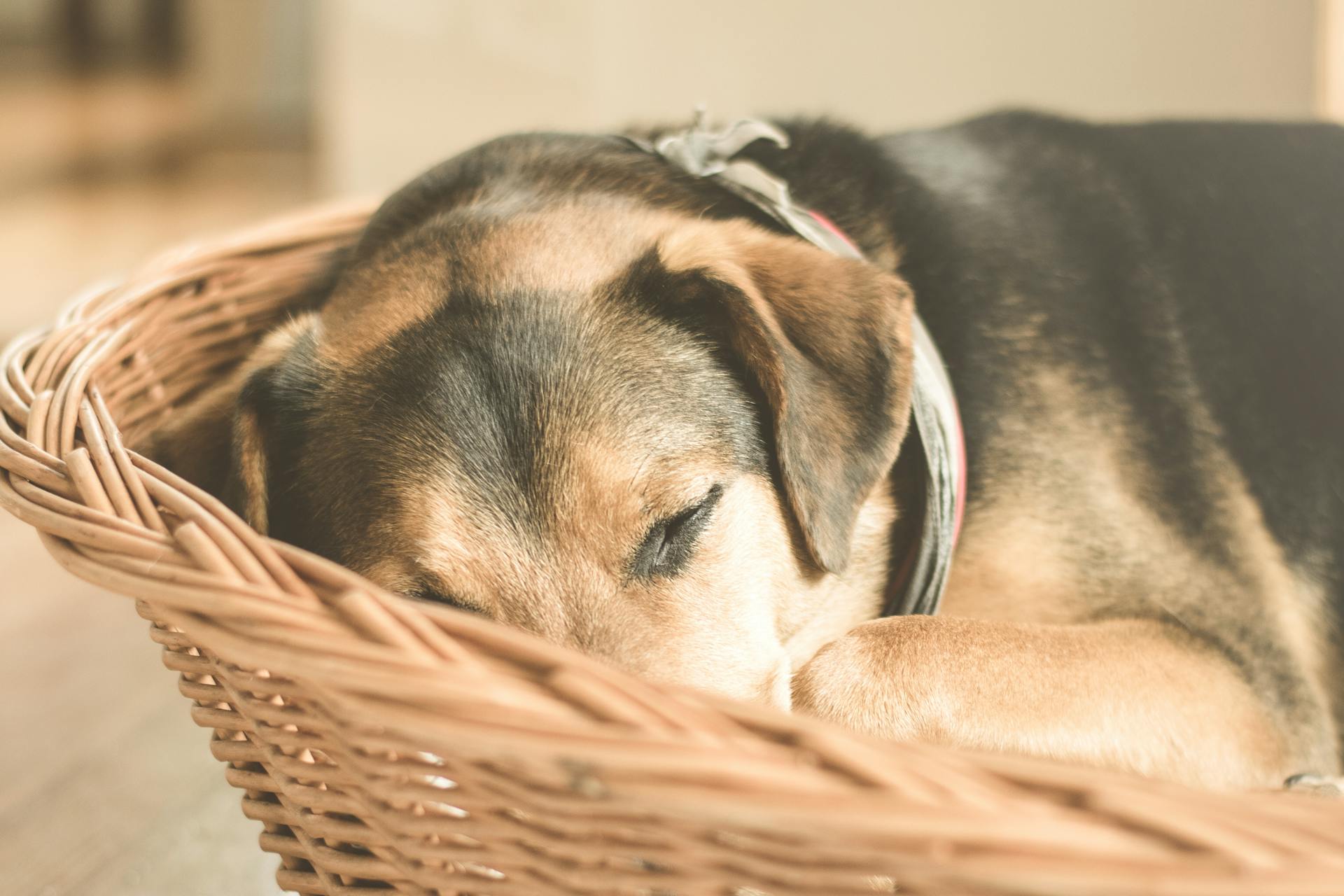
Border Collies are a medium-sized breed, but their size can vary depending on several factors. On average, a male Border Collie typically weighs between 30-45 pounds and stands between 18-22 inches tall at the shoulder.
Genetics play a significant role in determining a Border Collie's size, with some parents passing on their larger or smaller traits to their offspring.
Proper nutrition and exercise are also essential for a Border Collie's growth and development. A well-balanced diet and regular physical activity can help a Border Collie reach its full potential size.
Lineage, specifically the bloodlines of a Border Collie's parents, can also impact their size. Some bloodlines are known for producing larger or smaller dogs.
A different take: Are Corgis Considered Small Breed
Collie Growth Stages
Border Collies are a medium-sized breed, and their growth stages are quite fascinating. A 6 month old Border Collie typically weighs around 20-25 pounds and starts to resemble an adult dog in appearance.
At this age, they still require intense interaction, socialization, and training, so don't confuse their physical growth with their mental development. Their hair is getting longer, and their body is becoming tall and thin, especially for rough-coated Border Collies.
As for their full growth, Border Collies are mostly done growing around the age of 12 months. After this, they might gain a few pounds and build more muscles, but their size shouldn't change considerably after their first birthday.
Some very small Border Collies might already be done growing at 10 months of age, which can be due to them being mixed with a smaller breed.
Here's a quick rundown of the growth stages of Border Collies:
Keep in mind that some Border Collies might be larger or smaller than average, especially those in show lines or working lines.
Factors Affecting Collie Size
Border Collies were bred to work hard and make smart decisions, not to fit a certain physical breed standard. This means their size can vary greatly.
Some Border Collies can be quite small, even weighing as little as 25 pounds for some very small females. This is due to the breed's history of being "purpose bred" for their working abilities, not their physical appearance.
The American Kennel Club gives the following sizes for adult Border Collies:
Males tend to be larger and heavier-boned than females, especially those in show lines bred for conformation showing.
Health and Development
Border collies are a relatively healthy breed, but like all breeds, they can be prone to certain health issues.
Their average lifespan is 12-15 years, with some living up to 18 years or more with proper care.
Regular exercise and mental stimulation are crucial for their development and overall health.
A unique perspective: Welsh Corgi Health Problems
3 Month Old Collie
At 3 months old, a Border Collie puppy weighs around 12-15 pounds.
They grow rapidly in the first half year of their life, and their growth tapers off after that.
It's interesting to note that a puppy's birth weight is not a good predictor of their final size.
Some puppies are born the smallest of the litter, but then quickly catch up and overtake their larger littermates in growth.
Until a puppy is about 12 weeks old, their size and growth curve is not correlated with their final adult weight.
Only once a pup reaches the 3 months mark can we make accurate predictions about their future size.
Additional reading: Shetland Sheepdog Weight
Will My Collie Grow?
Border Collies are a medium-sized breed, but their size can vary greatly. Some might be tiny, even weighing as little as 25 pounds for very small females.
The American Kennel Club gives the following sizes for adult Border Collies:
Border Collies are mostly full-grown around the age of 12 months, but they might continue to gain a few pounds and build more muscles after this age. This is especially true for intact males, whose chest will become broader and deeper as they age.
Some very small Border Collies might already be done growing at 10 months of age, and this can be due to the fact that they were actually mixed with a smaller breed.
Health and Wellness
Maintaining your Sheepdog's health and wellness is crucial for her longevity and happiness. A consistent routine care schedule is essential, so make sure to build it into your daily planner.
Supervise your pet as you would a toddler, keeping doors closed, picking up after yourself, and blocking off rooms as necessary to keep her out of trouble. This includes preventing her from putting objects in her mouth that she shouldn't.

Brushing her coat at least weekly will help keep her clean and healthy. Border Collies, in particular, have good teeth that can be kept perfect by brushing them at least twice a week.
Clean her ears weekly, even as a puppy, to prevent infections and other issues. This is a simple yet crucial task that will pay off in the long run.
A proper diet and exercise routine are also vital for your Sheepdog's health and wellness. Feed a high-quality diet appropriate for her age, and keep her diet consistent to avoid digestive issues.
Exercise your dog regularly, but don't overdo it at first, especially for young puppies. This will help her build endurance and prevent injuries.
Here's a quick rundown of the essential care tasks to remember:
- Supervise your pet at all times
- Brush her coat weekly
- Brush her teeth at least twice a week
- Clean her ears weekly
- Feed a high-quality diet appropriate for her age
- Exercise her regularly, but don't overdo it
Diet and Nutrition
Border collies need two meals a day, with each meal consisting of .75 to 1 cup of dry dog food, depending on their size and activity level.
You should provide fresh, clean water for your dog at all times.
If your border collie is putting on weight, you'll need to discuss a plan of action with your veterinarian, which may involve changing their feeding schedule, type, or amount of food.
Providing enough daily exercise is crucial for this naturally tireless breed.
Sources
Featured Images: pexels.com


